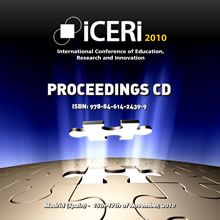Abstract
Environmental education has been included in almost every country school curriculum in the last 10 years. Its implementation has not been as successful as expected due to various constraints reported in several research projects, and its achievement remains uncertain and requires of more research in all areas of education. Climate change and degradation of the environment are global problems associated with many other challenges (e.g., population increases, reduction of glaciers, and loss of critical habitats). Developmental and educational psychological should play a critical role in addressing these problems by fostering a sustainable environment. Multiple strategies for fostering a sustainable environment could draw from various topics and areas of specialization within education. In order to propose a curriculum change research is needed on how and what do students really understand and know concerning sustainable development. An exploratory study was undertaken to study levels of comprehension on sustainable development in adolescents. An individual interview was conducted with 30 Spanish and Mexican high school students in aspects related to waste and recycling, several forms of pollution and contamination, demography, sources of environmental information, ideas on restraints and scarcity of natural resources, and their involvement in sustainable consumption practices. Data illustrate that students are aware of, but only moderately concern with environmental issues. Only few subjects were able to define environment in terms of a relational conception opposed to isolated phenomena. Knowing the concepts that adolescents use to explain sustainable development as well as knowledge and information gaps, can allow us to improve environmental education.
Keywords: knowledge acquisition, sustainable development, environmental education, adolescents.


